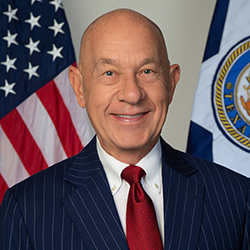Here’s a Chron story from the weekend that annoyed me a little.
Early voting in Harris County wrapped up Friday with some of the lowest voting turnouts in recent years for Texas’ most populous county. but still higher than in past non-mayoral elections.
According to unofficial totals from the Harris County Clerk’s Office, about 212,000 votes were cast during early voting, including 204,993 in-person votes and 7,111 mail-in ballots. That means almost 8% of the county’s 2.7 million registered voters participated early.
The figure is lower than the Nov. 7, 2023, election, the last non-presidential cycle, when roughly 233,000 residents voted early. It also marks a sharp decline from the 1.1 million who cast ballots early in last year’s presidential election.
This year’s election features a mix of municipal and special district contests, but no major statewide or national races. The most prominent contest on Harris County ballots is the special election to fill Rep. Sylvester Turner’s former seat in Texas’ 18th Congressional District. Voters within Houston city limits are also deciding the At-Large Position 4 City Council seat, vacated earlier this year by Letitia Plummer, who is running for county judge.
Mark Jones, a political scientist with Rice University, said the lack of a mayoral or city-wide race explains much of this year’s slower turnout.
“The principal reason is that we don’t have a City of Houston election on the ballot this year,” Jones said. “We also don’t have controversial propositions on the ballot like in San Antonio that would help build the new Spurs arena, or the proposition in Austin that would increase property taxes.”
Jones said the county is on pace to end up between a 12-14% turnout once Election Day votes are added, which is a higher turnout than 2017 and 2021, which each drew less than 10% turnout.
“That’s not great turnout overall, but it’s solid by comparison to the most recent non-mayor election years,” Jones said.
Actually, turnout for Harris County was 16.55%, which in context is significantly above Prof. Jones’ estimate. About half of the vote being cast on Election Day, which is more or less in line with most odd-numbered years; 2023 was an exception to that. I suspect Jones underestimated E-Day turnout.
But we did have a city of Houston election on the ballot – it was a special election, but it still counts – and we had the CD18 election, with quite a bit of money being spent in it. Both of those will drive turnout. Here’s how that broke down:
CD18 – 77,415 ballots cast out of 414,806 registered voters, for 18.66% turnout
Harris County overall – 440,570 ballots cast out of 2,662,659 registered voters, for 16.55% turnout
Harris County minus CD18 – 363,155 ballots cast out of 2,247,853 registered voters, for 16.16% turnout
City of Houston – 214,114 ballots cast out of 1,186,586 registered voters, for 18.04% turnout
Harris County minus Houston – 226,456 ballots cast out of 1,476,073 registered voters, for 15.34% turnout
Where the races were is where the action was. And in the end, that led to this year being quite the outlier for years in which there isn’t a regular city of Houston election scheduled. Here’s how that looks:
Year Harris Houston NotHouston
====================================
2025 16.55% 18.04% 15.34%
2023 17.47% 21.66% 14.00%
2021 9.22%
2019 16.22% 22.56% 11.62%
2017 6.72% 9.49% 4.35%
2015 20.51% 27.45% 14.19%
“NotHouston” is Harris County minus Houston, and that’s how I calculated that percentage. I only have the Harris County number for 2021 because there was nothing citywide that year – there were bond initiatives in 2017 – but it’s reasonable to assume that the Houston turnout rate that year would be about the same as the overall rate. Thanks to the CD18 and At Large #4 elections, 2025 was more like a Mayoral year than it was like 2021 or 2017. I don’t know why NotHouston turnout was higher this year than in other years, but let’s make a note of that for the future.
Anyway. I’m not that annoyed with the story. I just like to make sure all the angles are considered when we talk about turnout.
Here are a few notes based on the press releases I got on Wednesday:
– Jolanda Jones will run for re-election in HD147 and not in the primary for CD18. That primary is almost certainly going to include Al Green, and the campaign for it will start well before the runoff for the special election happens. There’s been reporting about confusion among voters who are currently in CD18, and while it’s clear to me what’s happening, it is a mess and easy to see why people are mixed up. The overlapping special election/primary campaigns won’t help, and neither will the fact that both Menefee and Edwards will have to file for the primary without knowing what their status will be.
– On a side note, we’re going to have a contested primary in CD29, as former State Rep. Jarvis Johnson plans to challenge Rep. Sylvia Garcia. Former CD18 candidate Robert Slater is also planning to run in CD29. This doesn’t have anything to do with the November results, but that tab had been open on my desktop for too long, and it is another indicator of how messy the next primary will be. Which is 100% one of the things the Republicans intended when they did the redistricting. See Campos for more.
– Texas Victory Consulting took a victory lap to celebrate their poll of CD18, which correctly predicted the order of the top candidates, and also pegged the level of support for Republican Carmen Montiel and independent George Foreman. The last UH/Hobby poll was also pretty accurate.
– The Lone Star Project touted the performance of Taylor Rehmet in SD09.
Tarrant County voters sent a strong and, for some, unexpected message by giving Taylor Rehmet nearly 48 percent of the vote in the special election in State Senate District 9, considered by most to be safely Republican.
Rehmet ran first in a multi-candidate field and more than 10 points ahead of the second-place finisher, hand-picked MAGA activist Leigh Wambsganss. Rehmet got 47.6 percent of the vote compared to Wambsganss’ 36 percent, and Rehmet was less than 3,000 votes away from an outright majority.
Among those not surprised by the strong showing were Taylor Rehmet and his army of supporters that include Democrats, Independents, and some clear-eyed Republicans. From day one, Taylor focused on the core issues important to Tarrant County voters – low taxes, good jobs, good schools, and driving utility and other prices down.
Rehmet’s message contrasts sharply with Wambsganss who works as a MAGA mouthpiece for Patriot Mobile, a cellular service company that skims revenue to back ideologically extreme candidates and causes.
Wambsganss’ second place finish ahead of the more traditional Republican candidate, John Huffman, is further confirmation that the Republican Party in Tarrant is now entirely dominated by the most extreme MAGA elements in our culture.
Make no mistake, Texas Senate District 9 was drawn to be a safe district for Republicans, but no district can be expected to back candidates whose only qualification is expertise in fomenting hate and pitting Texans against each other.
Taylor Rehmet is giving District 9 voters a chance to be represented by someone who brings a clear-eyed and fair-minded point of view to public service. Wambsganss is promising more hateful division and mindless devotion to ideologue leaders in Austin and Washington.
Here’s the Star-Telegram story on this race. I don’t know what to expect for the runoff, but this race deserves more attention. I recognize that may have the effect of boosting Republican turnout – for sure, the GOP will not want to lose this seat, even if that doesn’t mean much in terms of controlling that chamber. It would just be hugely embarrassing to them. Which I certainly favor.
Finally, one more result of interest that I didn’t mention before:
Residents in a rural North Texas community have voted not to become the state’s newest small city as supporters attempted to regulate a nearby Bitcoin mine.
Unofficial results show voters in Mitchell Bend, a small community south of Granbury, voted overwhelmingly not to become a Type B municipality.
Supporters had been campaigning for months in an effort to regulate the Bitcoin operation, owned by MARA Holdings, within its boundaries. They say the mine makes a constant humming noise that has caused health issues including lack of sleep, nausea and vertigo.
Cheryl Shadden, who runs the Facebook page Bitcoin Noise Hood County, lives directly across the street from the Bitcoin mine. She said she’s suffered from hearing loss and the noise has also impacted her livestock.
“We’re not against big industry,” Shadden told KERA ahead of the election. “What we’re against is harming the community.”
Shadden and other residents have said that incorporating as a city was one of the only ways they could effectively take action against the noise pollution.
“What we want to do is get back and preserve the peace we had, it’s that simple,” said Tom Weeks, who lives in a neighborhood behind the mine.
The Trib had a preview of this election as well as a story about the election result. I feel for the people affected by the noise. I would suggest they start pestering their legislators about this as well. Josh Marshall has more on the national perspective, and The Barbed Wire covers the constitutional amendments. I’ll have more tomorrow on the school board races.













